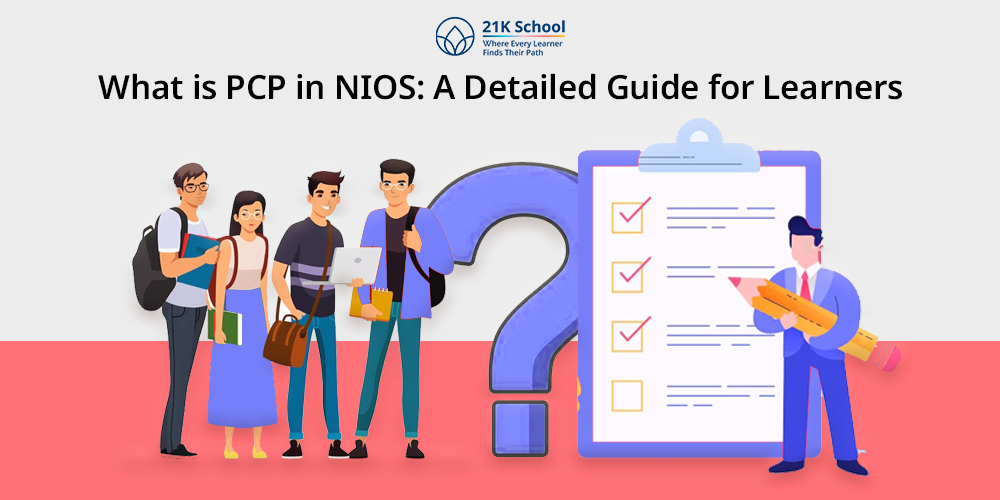
In today’s changing world the education system is evolving. Now it is more flexible and especially for learners who are pursuing education through open and distance learning .
The National Institute of Open Schooling or NIOS is one of the largest open schooling platforms in India. It offers flexibility to learners.
However, in this independent learning the need for structured support is crucial. Here’s when PCP or Personal Contact Programme steps in.
There are lots of learners enrolling in NIOS who are unaware of the importance and benefits of PCP in their learning.
Are you a learner or parent exploring NIOS or already enrolled, understanding PCP is important. It will enhance students’ learning journey.
Here we will explore what PCP is, the benefits of PCP and why it’s important for NIOS learners. Let’s begin with what PCP in NIOS is.
Contents
What is PCP in NIOS?
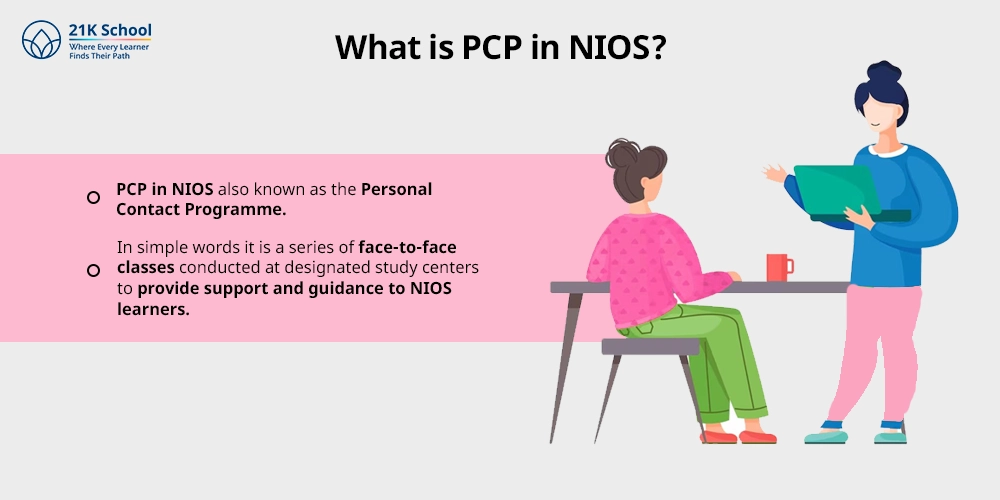
PCP in NIOS also known as the Personal Contact Programme. In simple words it is a series of face-to-face classes conducted at designated study centers to provide support and guidance to NIOS learners.
PCP sessions are created to guide learners with their coursework, clear all doubts and offer support, especially for subjects with practical components.
It is a crucial support provided by NIOS which helps to bridge the gap between self-study and guided learning.
It gives learners an environment to reinforce what they have learned from books and other notes or materials.
Key Features of PCP
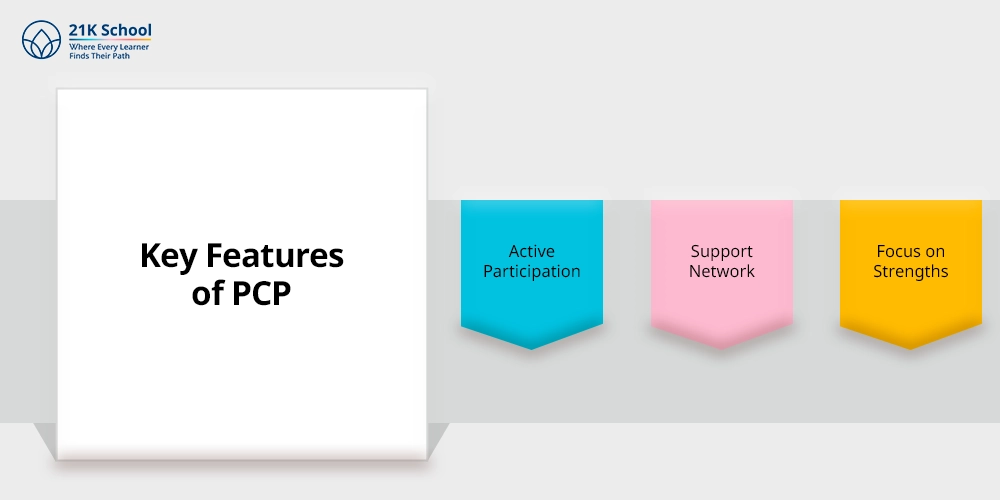
PCP in NIOS focuses on the learner’s requirements, preferences, and goals, placing them at the core of the planning process.
Some key features of PCP includes:
1. Active Participation
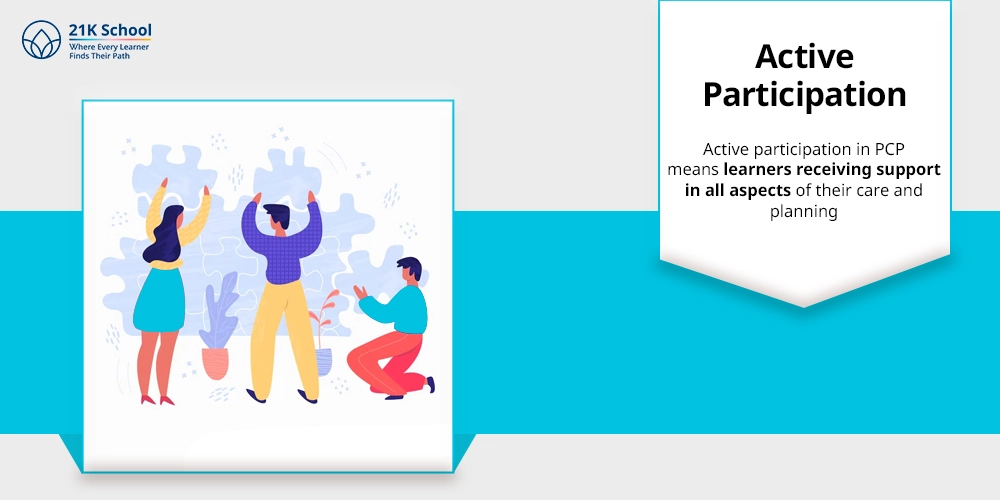
Active participation in PCP means learners receiving support in all aspects of their care and planning.
Active participation in PCP includes putting the individual at the center, fostering a sense of partnership with family and friends, focusing on the individual’s strengths and needs, and ensuring that the plan leads to meaningful actions that improve their life.
2. Support Network
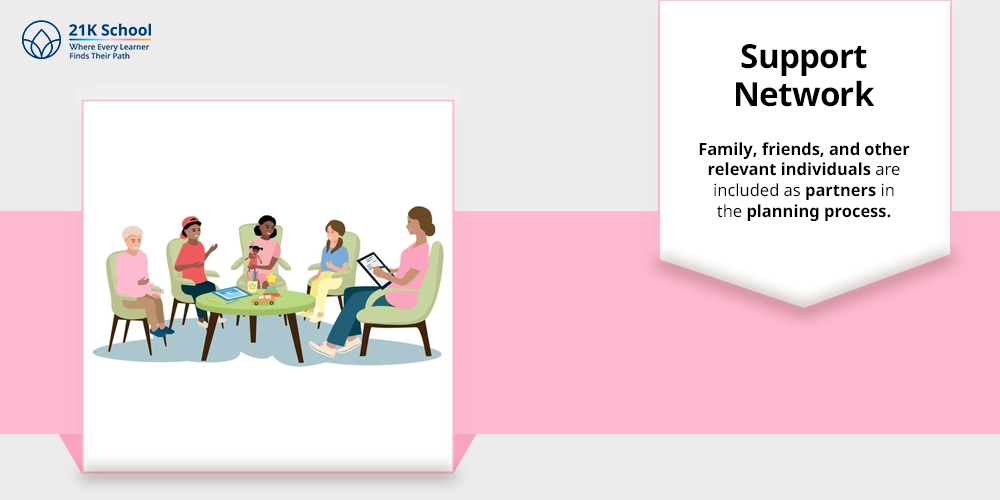
PCP prioritises individual needs which leads to support network development.
Family, friends, and other relevant individuals are included as partners in the planning process. They provide support, guidance, and contribute to the individual’s vision.
3. Focus on Strengths
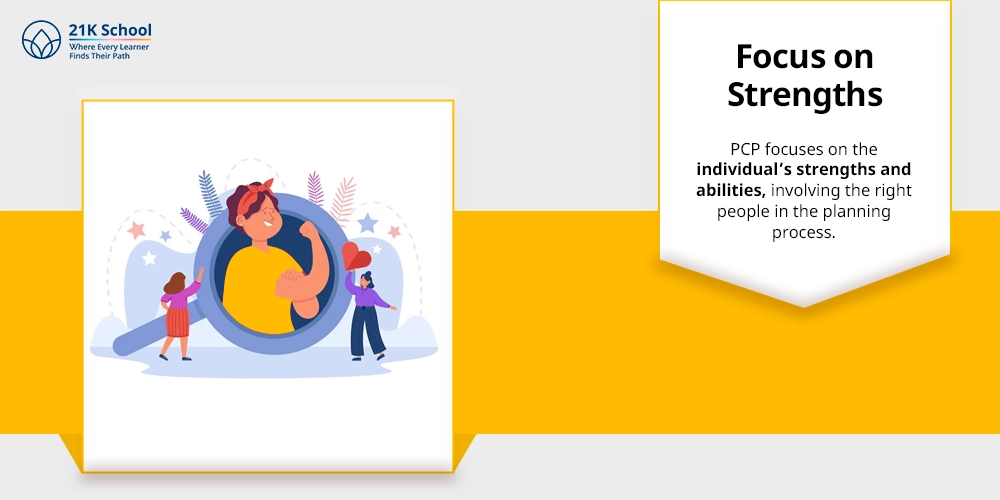
PCP focuses on the individual’s strengths and abilities, involving the right people in the planning process.
This encourages dreams and aspirations and promotes inclusion and choice.
Objectives of Personal Contact Programme
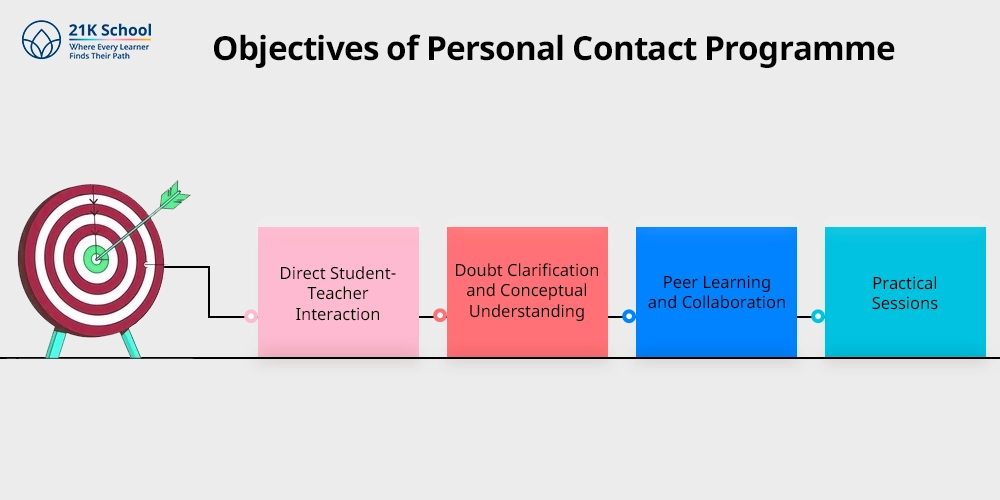
The objectives of the Personal Contact Programme in distance education provide various opportunities.
Opportunities for interaction, clarification of doubts, and academic guidance to students who may otherwise feel isolated.
Here are some major objectives of the Personal Contact Programme:
1. Direct Student-Teacher Interaction
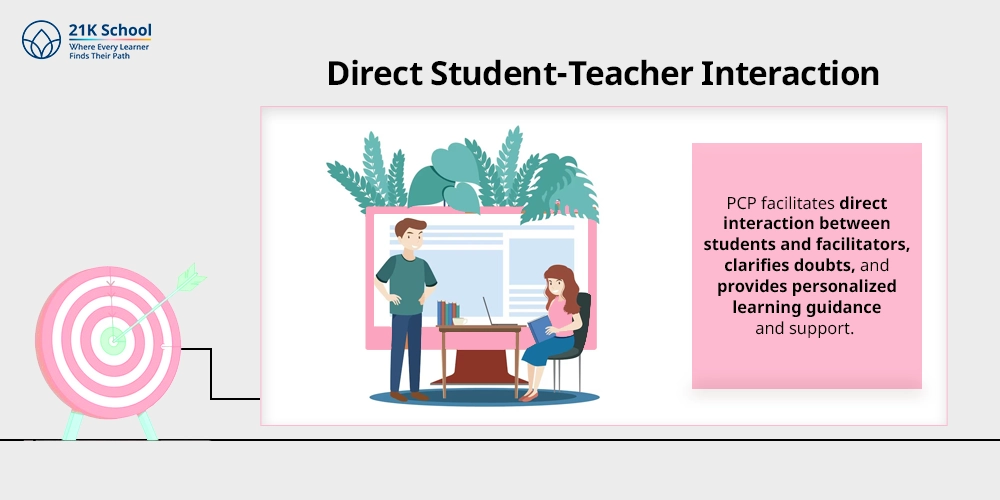
One of the primary objectives is direct student-teacher interaction.
PCP facilitates direct interaction between students and facilitators, clarifies doubts, and provides personalized learning guidance and support.
2. Doubt Clarification and Conceptual Understanding
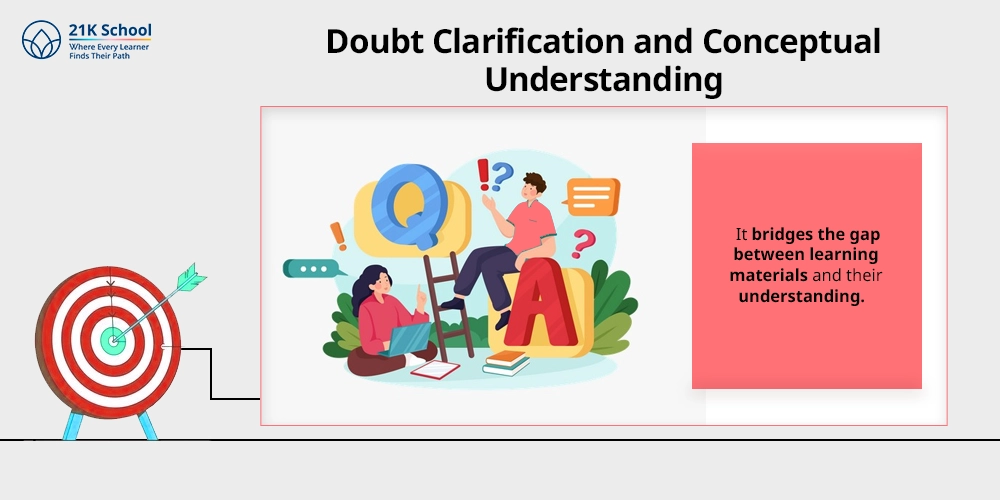
PCP focuses on doubt clarification and conceptual understanding of learners. It bridges the gap between learning materials and their understanding.
Thus can be done by facilitators and student interaction, and enabling conceptual clarity.
This includes clarifying doubts, fostering a deeper understanding of concepts, and offering a supportive learning environment .
3. Peer Learning and Collaboration
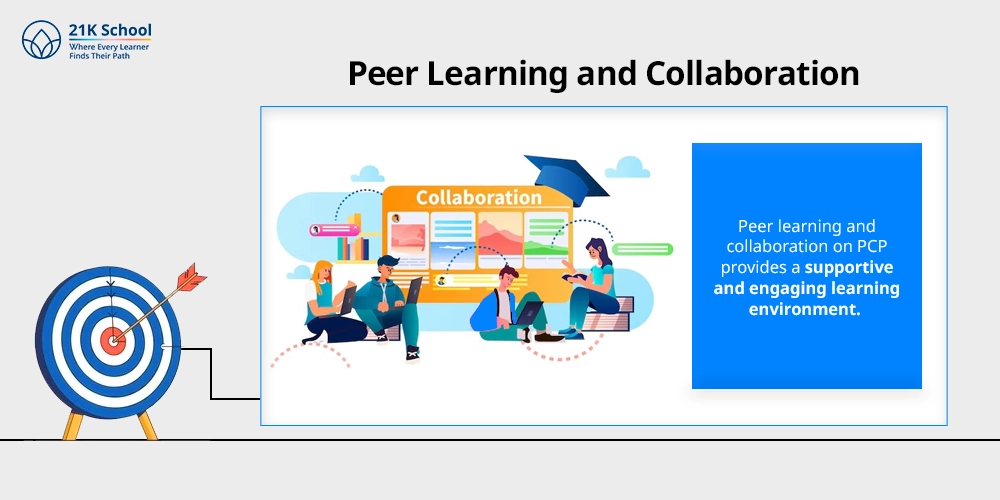
Peer learning and collaboration on PCP provides a supportive and engaging learning environment.
This enhances learners’ communication skills, social skills, and promotes deeper understanding of the subject matter through shared knowledge and experiences.
4. Practical Sessions
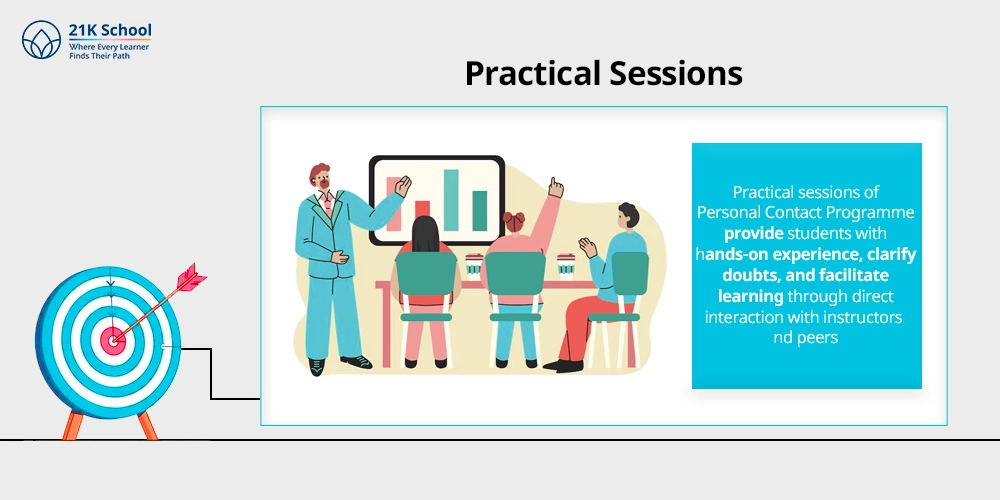
Practical sessions of Personal Contact Programme provide students with hands-on experience, clarify doubts, and facilitate learning through direct interaction with instructors and peers.
Structure of PCP in NIOS
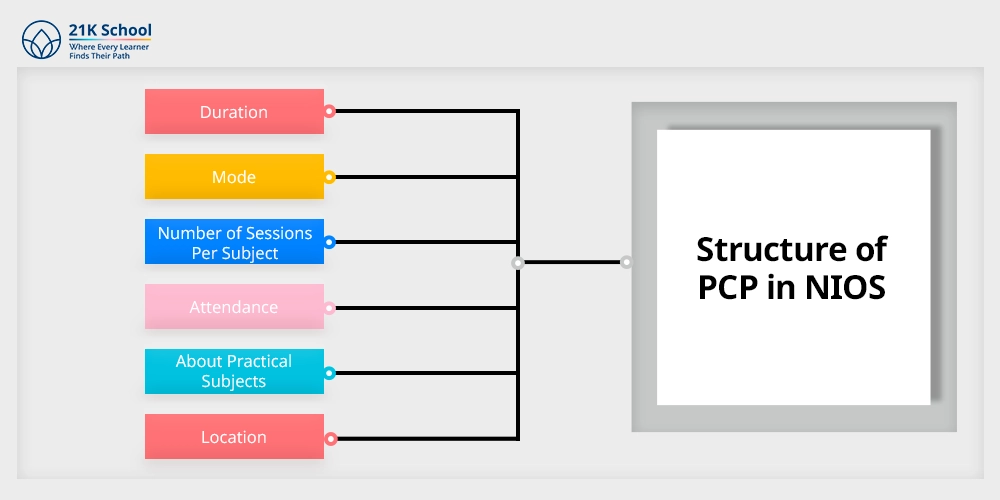
Understanding the structure of PCP in NIOS is crucial for learners to work accordingly.
Here’s a breakdown of the structure of the PCP programme in real life.
1. Duration
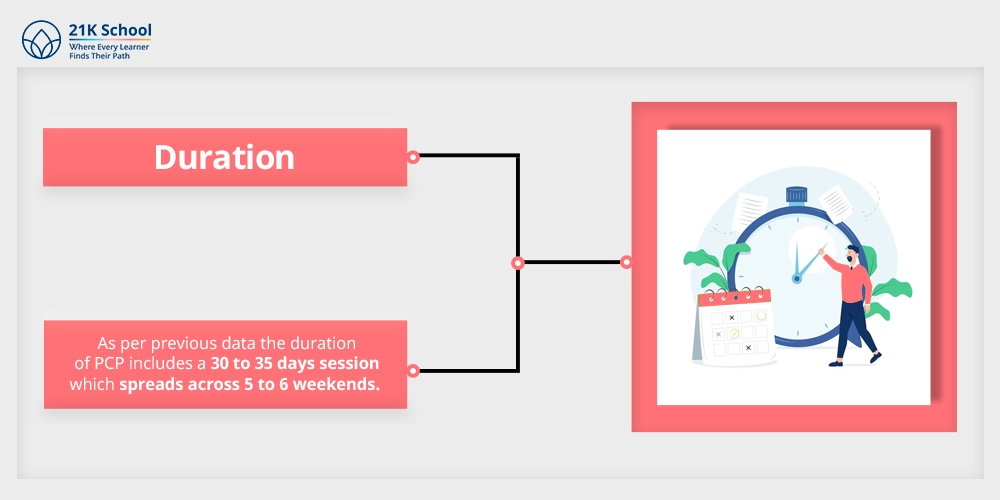
As per previous data the duration of PCP includes a 30 to 35 days session which spreads across 5 to 6 weekends.
It depends on the center’s schedule and subject requirements.
2. Mode
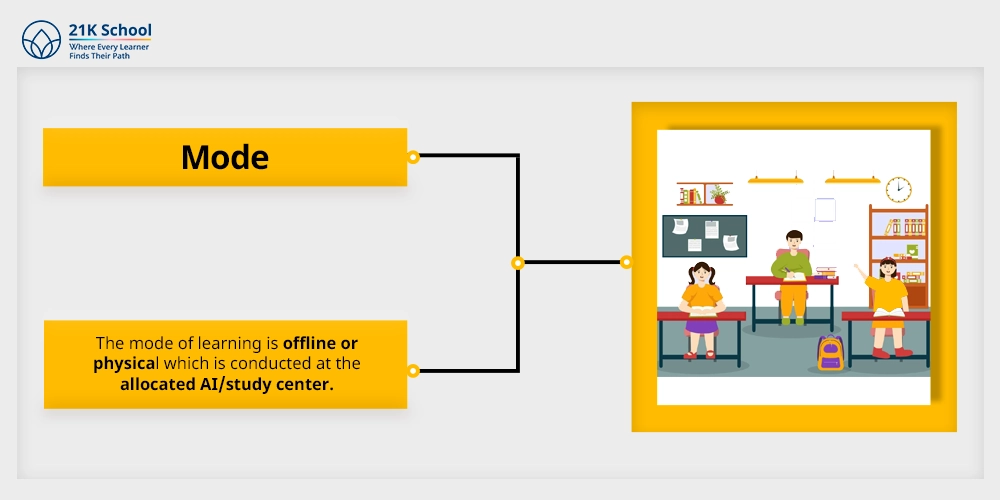
The mode of learning is offline or physical which is conducted at the allocated AI/study center.
However, for learners some centers may provide limited online interaction but the official mode is physical attendance.
3. Number of Sessions Per Subject
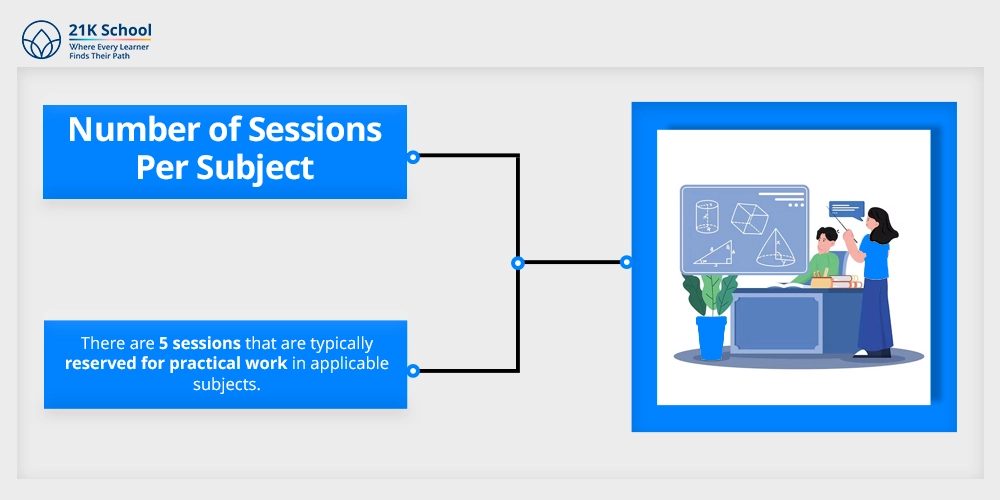
The number of sessions per subject is 20. However, there are 5 sessions that are typically reserved for practical work in applicable subjects.
4. Attendance
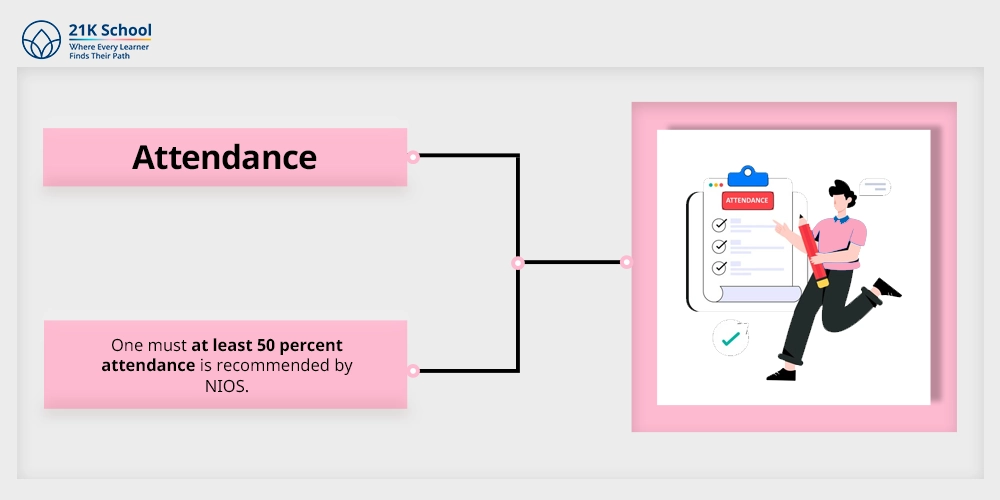
Full attendance is not strictly or compulsory for learners. One must at least 50 percent attendance is recommended by NIOS.
For practical subjects, attendance is strongly needed or mandatory to be eligible for practical exams.
5. About Practical Subjects
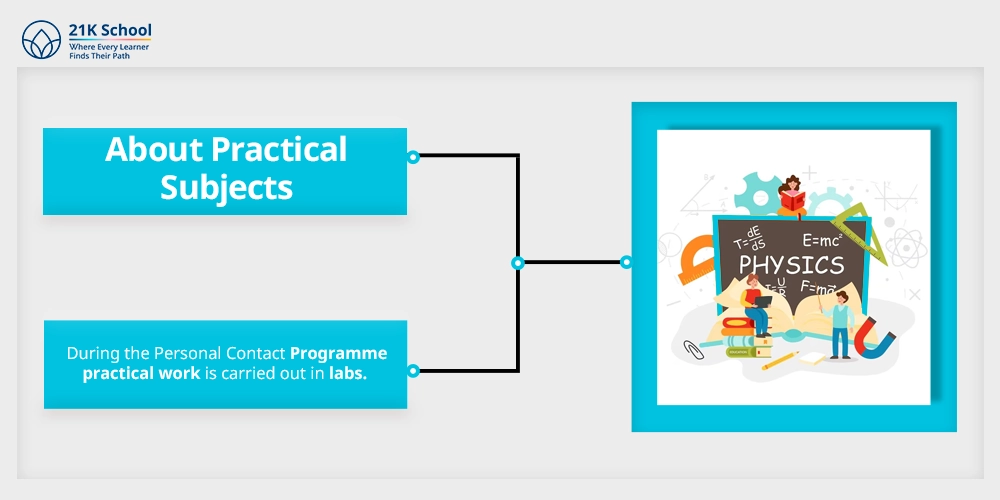
During the Personal Contact Programme practical work is carried out in labs. The marks in practicals are based on performance.
However, attendance can impact the ability of learners to appear for practical exams.
6. Location

PCP sessions are held at your designated Accredited Institution (AI). The location and schedule are provided after admission confirmation.
Is PCP in NIOS Compulsory?
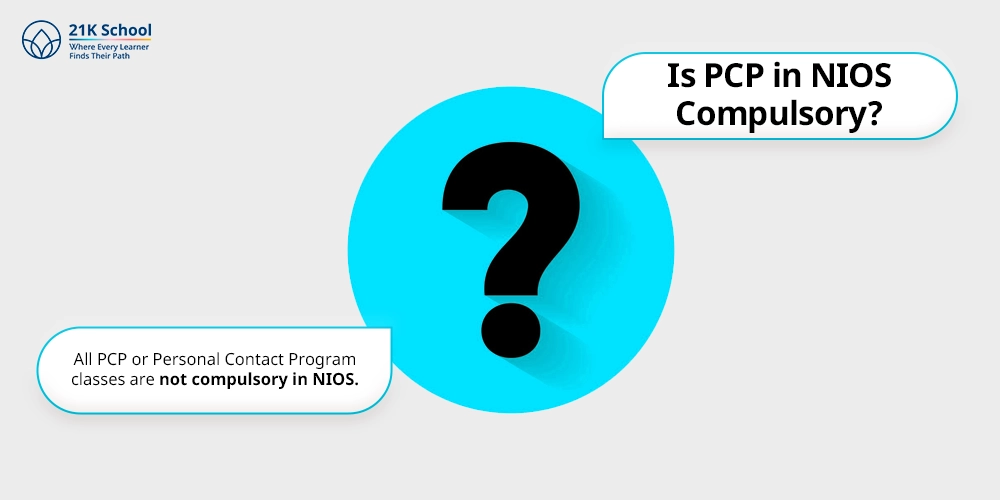
All PCP or Personal Contact Program classes are not compulsory in NIOS. However, it is highly recommended by the facilitators especially for subjects with practicals.
Learners need to attend all the five practical sessions. And for theory subjects, while 30 PCPs are offered, only 15 are compulsory for learners.
The PCPs are tailored to guide learners with their education and not meant to replace the curriculum.
If you want to enroll in NIOS senior secondary must read how to take admission in NIOS for 12th class .
Benefits of Attending Personal Contact Programme
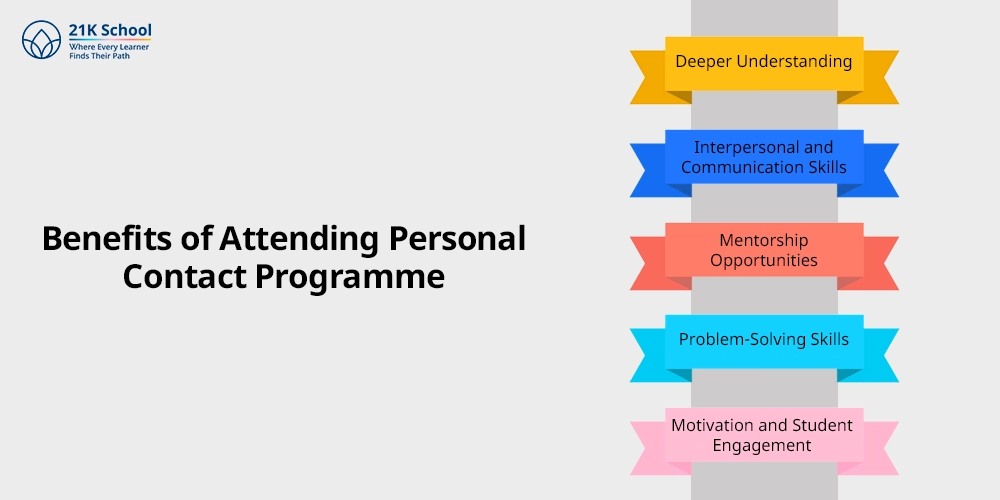
Personal Contact Programme classes offer numerous benefits to learners which includes enhanced learning, personalized guidance, and improved communication skills.
It boosts learners confidence , and overall well-being to provide opportunities for future growth. Here’s some primary benefits of PCP:
1. Deeper Understanding
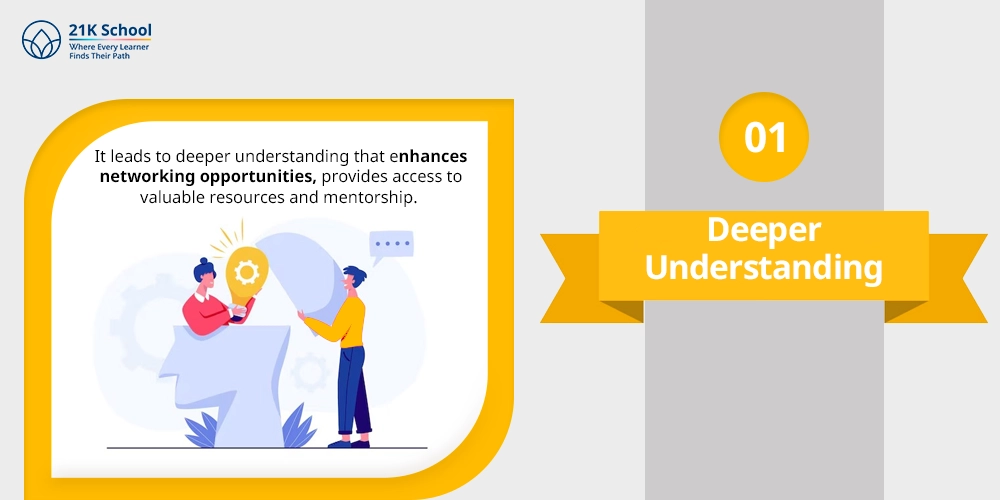
Attending guides in both personal and professional development.
It leads to deeper understanding that enhances networking opportunities, provides access to valuable resources and mentorship. It helps in a growth mindset, encourages adaptability, and boosts motivation.
2. Interpersonal and Communication Skills
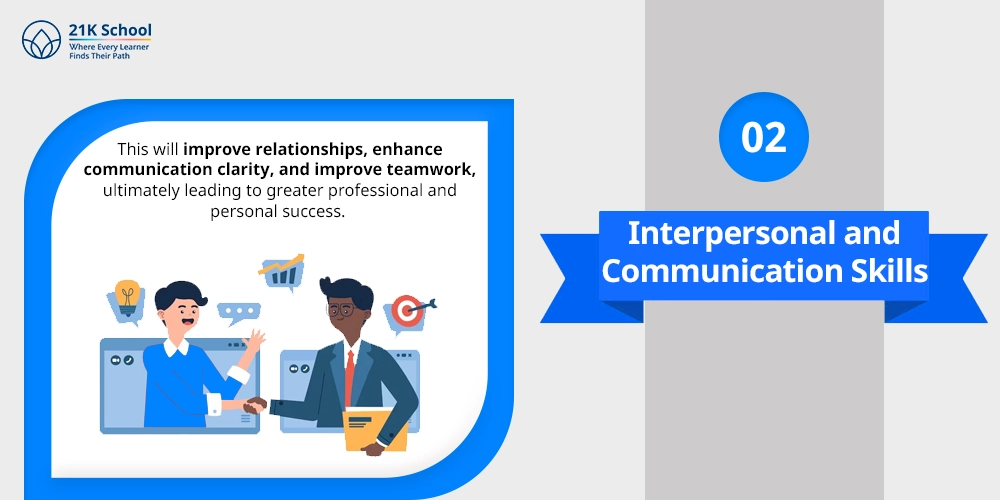
Development of interpersonal and communication skills is one of the benefits of PCP. To know more, understand the importance of communication skills .
This will improve relationships, enhance communication clarity, and improve teamwork, ultimately leading to greater professional and personal success.
3. Mentorship Opportunities
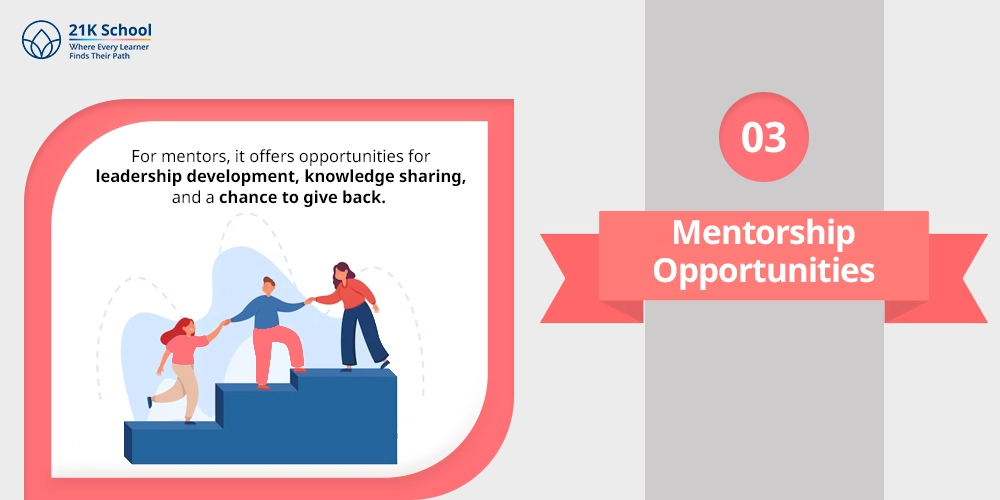
The Personal Contact Program offers valuable mentorship opportunities to the learners. This will motivate people towards career development.
For mentors, it offers opportunities for leadership development, knowledge sharing, and a chance to give back.
4. Problem-Solving Skills
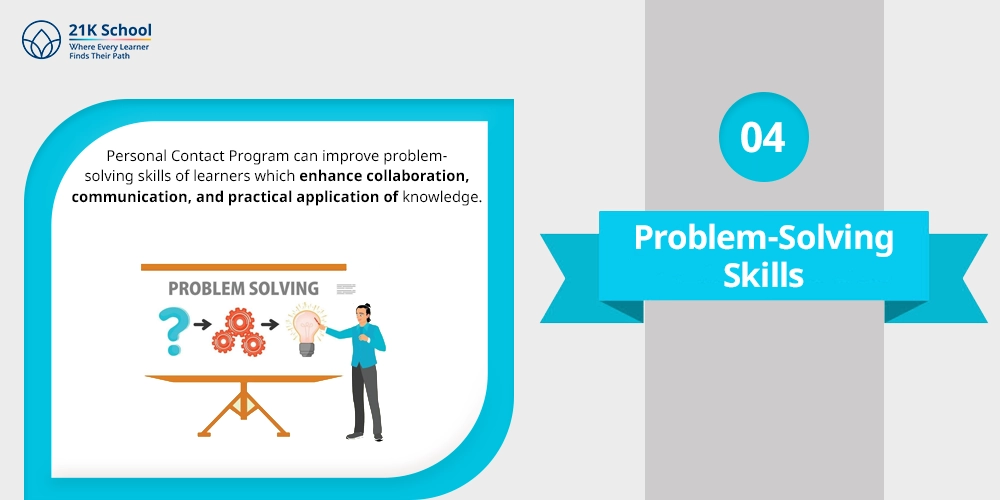
Personal Contact Program can improve problem-solving skills of learners which enhance collaboration, communication, and practical application of knowledge .
The program ensures teamwork which provides valuable insights and ideas to solve problems.
5. Motivation and Student Engagement
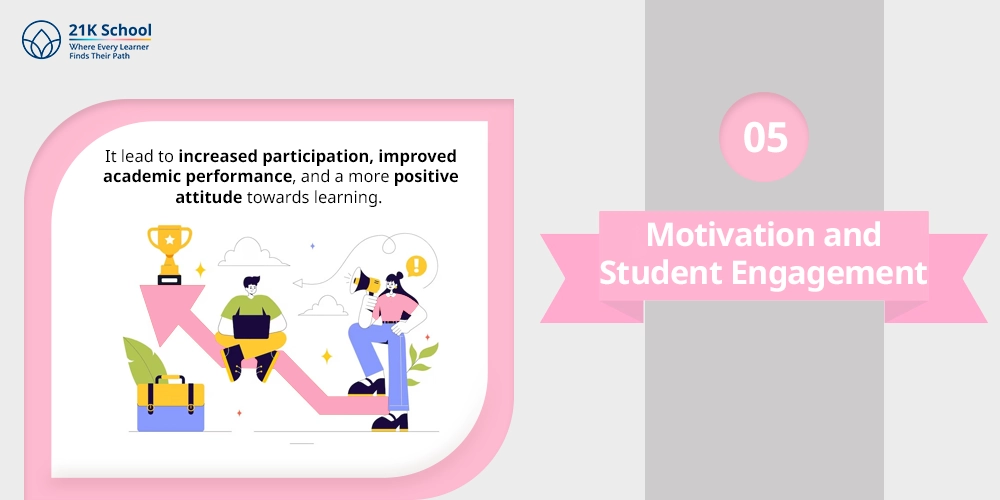
Personal Contact Program boosts motivation and student engagement which can lead to increased participation, improved academic performance, and a more positive attitude towards learning.
Important Rules and Guidelines to Attend PCP
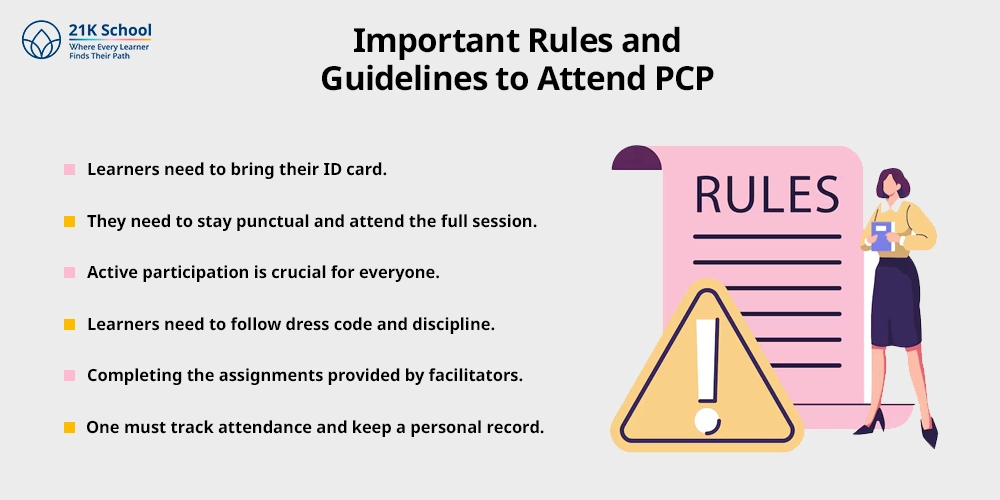
The Personal Contact Programme has some essential guidelines learners need to follow. Here’s a detailed information for you:
- Learners need to bring their ID card. Carry NIOS ID and admit card to each session as proof of enrollment.
- Learners in both secondary and senior secondary had a schedule. They need to stay punctual and attend the full session.
- Active participation is crucial for everyone. Learners need to engage in discussions, ask questions, and complete practical work sincerely.
- Learners need to follow dress code and discipline to maintain the decorum as per the study center’s norms.
- Completing the assignments provided by facilitators in the form of worksheets or practice questions.
- One must track attendance and keep a personal record especially for practical subjects.
PCP for Secondary Vs Senior Secondary
The Personal Contact Programme for Secondary or class 10 and Senior Secondary or class 12 levels differs primarily in the number of sessions and the inclusion of practical components.
Here’s a key difference between of PCP for secondary vs senior secondary learners:
| S.No. | Particulars | Secondary (Class 10) | Senior Secondary (Class 12) |
| 1. | Number of Sessions: | The total number of sessions are 20 per subject in class 10th. | The total number of sessions are also 20 per subject in class 12th. |
| 2. | Practical Focus: | Practicals are present in select subjects in class 10th. | Here learners deal with more practical-intensive things in class 12th. |
| 3. | Level of Complexity: | Level of complexity moderate in secondary learning. | Level of complexity is higher academic complexity. |
| 4. | Subject Coverage: | Core and elective subjects. | Advanced academic disciplines. |
| 5. | Attendance: | Recommended. | Strongly recommended, especially for practicals. |
Conclusion: Is PCP Worth It?
PCP in NIOS is essential for open learning and structured classroom support for every learner.
In NIOS learners can get flexibility, self-paced study, and independence while learning. PCP is ideal for reinforcing education, building confidence, and enhancing academic performance.
Students who attend PCP regularly can make a difference in learning. From better exam outcomes to useful interactions and long-term facilitators mentorship.
Are you someone enrolled in NIOS , don’t miss this valuable opportunity of PCP. It is not just attending a few classes.
It’s about creating a personalized learning journey with the right facilitator guidance and support.
Also explore the crucial benefits of personalized learning .
